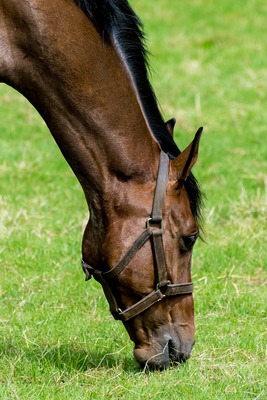By Peter Douglas
THE Yarra Ranges is a hot spot for animal cruelty and more prevention activity needs to be taken, according to the Victoria RSPCA.
RSPCA statistics released last week revealed that of the 79 local government areas in Victoria, Yarra Ranges ranked fourth in the number of cases, behind only Casey City, Greater Geelong and Melbourne City council areas.
In the Yarra Ranges, welfare concerns for horses, dogs and cats made up most of the issues.
From data compiled throughout the 2016 financial year, the RSPCA revealed there were 460 reports received in the Yarra Ranges, with 154 related to horses.
Dogs in the Yarra Ranges also fared incredibly poorly, with 156 cases reported and five related to puppies.
Also, 36 cases related to cats and seven for kittens.
The concerns revealed were wide ranging, with everything from reports of underweight animals, to concerns raised about hygiene, grooming and housing conditions.
Surprisingly, Catherine Grayson from Harmony Reins Animal Haven, which operates in the Yarra Ranges and aims to give neglected animals a second chance, said she wasn’t surprised over the statistics.
Ms Grayson said during her time with the animal haven she continues to see cases of animal cruelty in the region.
“Sometimes people just don’t understand the commitment required, especially with a larger animal such as a horse,” she said.
“Just because horses have grass around them, doesn’t mean they don’t need to be fed and cared for.
“Owners might be a bit tired after work, or it might be raining outside, so they might not get fed.
“Sometimes it’s a case of out of sight, out of mind.
“It might be owners are getting lazy and not realising how much harm they’re doing.”
Ms Grayson said that her animals will always get fed before she does.
However, Ms Grayson said in many cases the abuse wasn’t intentional.
This might be due to an illness or other issues with the animal owner.
Though, she encouraged owners to speak up if they were finding it tough to look after their pet.
“Don’t ever think there isn’t an option, simply do your research and there are people out there who will help you,” she said.
“There is always someone who will put up there hand to help you out.”
Ms Grayson it could be as simple as conducting a Google search in order to find help.
Among the statistics in the report included 90 issues involving sick or injured animals which did not receive vet treatment.
There were 92 reports of animals with insufficient food, 64 with insufficient water and 75 with insufficient shelter.
Also damning was the fact that of the 1154 animals that were abandoned state-wide, 41 of those came from the Yarra Ranges.
There were 35 concerns raised about animals being beaten or wounded.
Dr Liz Walker, CEO of RSPCA Victoria, said that geographic analysis of cruelty reporting data will support RSPCA Victoria’s efforts to target its prevention activity to the areas that need it most.
“RSPCA Victoria’s vision is ending cruelty to all animals – and we know that prevention is the key to ending cruelty,” Dr Walker said.
“Over the next 12 months, we will be using this data to help us identify the areas that would benefit most from community education and support.”







